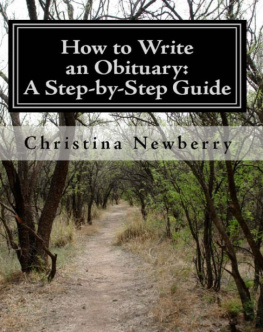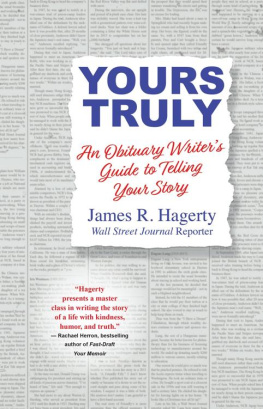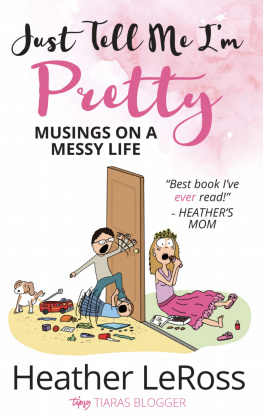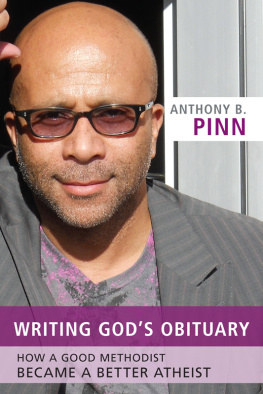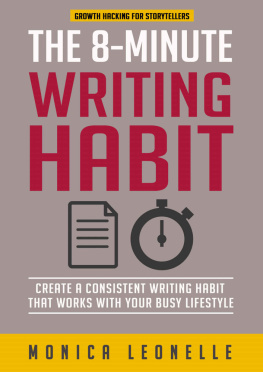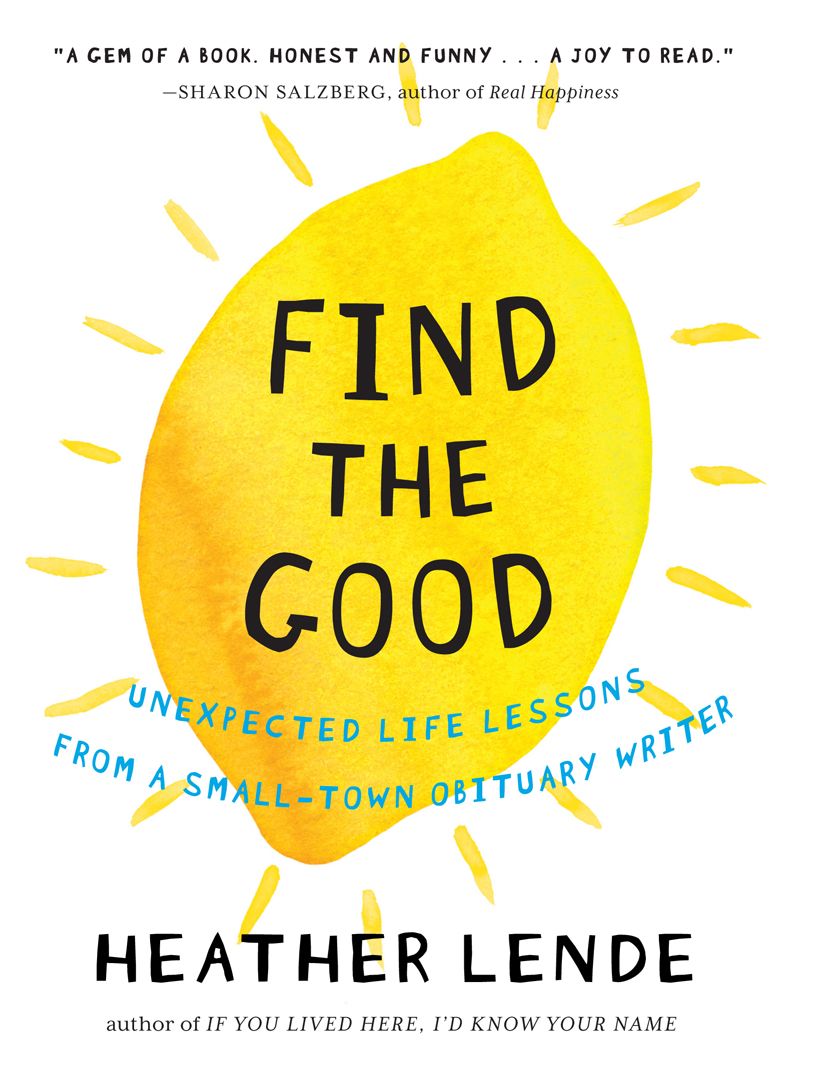Heather Lende - Find the Good: Unexpected Life Lessons from a Small-Town Obituary Writer
Here you can read online Heather Lende - Find the Good: Unexpected Life Lessons from a Small-Town Obituary Writer full text of the book (entire story) in english for free. Download pdf and epub, get meaning, cover and reviews about this ebook. year: 2015, publisher: Algonquin Books, genre: Home and family. Description of the work, (preface) as well as reviews are available. Best literature library LitArk.com created for fans of good reading and offers a wide selection of genres:
Romance novel
Science fiction
Adventure
Detective
Science
History
Home and family
Prose
Art
Politics
Computer
Non-fiction
Religion
Business
Children
Humor
Choose a favorite category and find really read worthwhile books. Enjoy immersion in the world of imagination, feel the emotions of the characters or learn something new for yourself, make an fascinating discovery.

- Book:Find the Good: Unexpected Life Lessons from a Small-Town Obituary Writer
- Author:
- Publisher:Algonquin Books
- Genre:
- Year:2015
- Rating:3 / 5
- Favourites:Add to favourites
- Your mark:
Find the Good: Unexpected Life Lessons from a Small-Town Obituary Writer: summary, description and annotation
We offer to read an annotation, description, summary or preface (depends on what the author of the book "Find the Good: Unexpected Life Lessons from a Small-Town Obituary Writer" wrote himself). If you haven't found the necessary information about the book — write in the comments, we will try to find it.
Quirky and profound, individual and universal, Find the Good offers up short chapters that help us unlearn the habit--and it is a habit--of seeing only the negatives. Lende reminds us that we can choose to see any event--starting a new job or being laid off from an old one, getting married or getting divorced--as an opportunity to find the good. As she says, We are all writing our own obituary every day by how we live. The best news is that theres still time for additions and revisions before it goes to press.
Ever since Algonquin published her first book, the New York Times bestseller If You Lived Here, Id Know Your Name, Heather Lende has been praised for her storytelling talent and her plainspoken wisdom. The Los Angeles Times called her part Annie Dillard, part Anne Lamott, and that comparison has never been more apt as she gives us a fresh, positive perspective from which to view our relationships, our obligations, our priorities, our community, and our world.
An antidote to the cynicism and self-centeredness that we are bombarded with every day in the news, in our politics, and even at times in ourselves, Find the Good helps us rediscover whats right with the world.
Heather Lendes small town is populated with big hearts--she finds them on the beach, walking her granddaughters, in the stories of ordinary peoples lives, and knits them into unforgettable tales. Find the Good is a treasure. Jo-Ann Mapson, author of Owens Daughter
Find the Good is excellent company in unsteady times . . . Heather Lende is the kind of person you want to sit across the kitchen table from on a rainy afternoon with a bottomless cup of tea. When things go wrong, when things go right, her quiet, commonsense wisdom, self-examining frankness, and good-natured humor offer a chance to reset, renew, rebalance. Pam Houston, author of Contents May Have Shifted
With gentle humor and empathy [Lende] introduces a number of people who provide examples of how to live well . . . [Find the Good] is simple yet profound. Booklist
In this cynical world, Find the Good is a tonic, a literary wellspring, which will continue to run, and nurture, even in times of drought. What a brave and beautiful thing Heather Lende has made with this book. John Straley, Shamus Award winner and former writer laureate of Alaska
Heather Lende is a terrific writer and terrific company: intimate, authentic, and as quirky as any of her subjects. Marilyn Johnson, author of The Dead Beat
Heather Lende: author's other books
Who wrote Find the Good: Unexpected Life Lessons from a Small-Town Obituary Writer? Find out the surname, the name of the author of the book and a list of all author's works by series.

